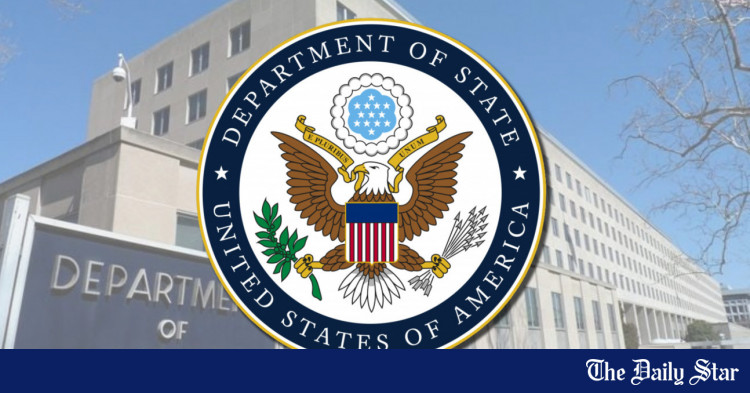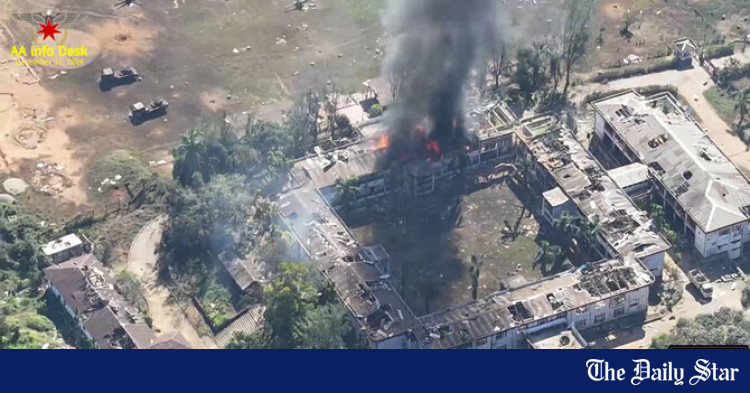Saif
Senior Member
- Joined
- Jan 24, 2024
- Messages
- 17,319
- Likes
- 8,344
- Nation

- Residence

- Axis Group


US worried over conflict in Rakhine State: Millar
The United States has expressed concern over the ongoing conflict in Myanmar’s Rakhine State and its potential to destabilise the region.
US worried over conflict in Rakhine State: Millar
Calls for media freedom in Bangladesh

The United States has expressed concern over the ongoing conflict in Myanmar's Rakhine State and its potential to destabilise the region.
Speaking at a press briefing in Washington yesterday, US State Department Spokesperson Matthew Miller emphasised the urgency of addressing the crisis.
"We remain concerned by the conflict and its potential to undermine regional stability and security. Helping resolve the Rohingya refugee crisis remains a priority for us.
"We will continue to work with Bangladesh to support the Rohingya and members of other vulnerable communities from Burma [Myanmar] who have taken refuge there," Miller added.
The ongoing conflict has significantly escalated the humanitarian crisis in the region. The Arakan Army, an ethnic armed group, now controls more than 80 percent of Rakhine State, according to media reports.
Meanwhile, UN Secretary General António Guterres has assured UN's full support for the high-level conference on Rohingya to be held in early next year.
He expressed his deep concern over the plight of the Rohingyas and highly commended Bangladesh for sheltering the displaced Rohingyas when Permanent Representative of Bangladesh to the UN Muhammad Abdul Muhith paid farewell call on Guterres in New York on Tuesday.
Calls for media freedom in Bangladesh
The United States has expressed concern over the ongoing conflict in Myanmar's Rakhine State and its potential to destabilise the region.
Speaking at a press briefing in Washington yesterday, US State Department Spokesperson Matthew Miller emphasised the urgency of addressing the crisis.
"We remain concerned by the conflict and its potential to undermine regional stability and security. Helping resolve the Rohingya refugee crisis remains a priority for us.
"We will continue to work with Bangladesh to support the Rohingya and members of other vulnerable communities from Burma [Myanmar] who have taken refuge there," Miller added.
The ongoing conflict has significantly escalated the humanitarian crisis in the region. The Arakan Army, an ethnic armed group, now controls more than 80 percent of Rakhine State, according to media reports.
Meanwhile, UN Secretary General António Guterres has assured UN's full support for the high-level conference on Rohingya to be held in early next year.
He expressed his deep concern over the plight of the Rohingyas and highly commended Bangladesh for sheltering the displaced Rohingyas when Permanent Representative of Bangladesh to the UN Muhammad Abdul Muhith paid farewell call on Guterres in New York on Tuesday.








































